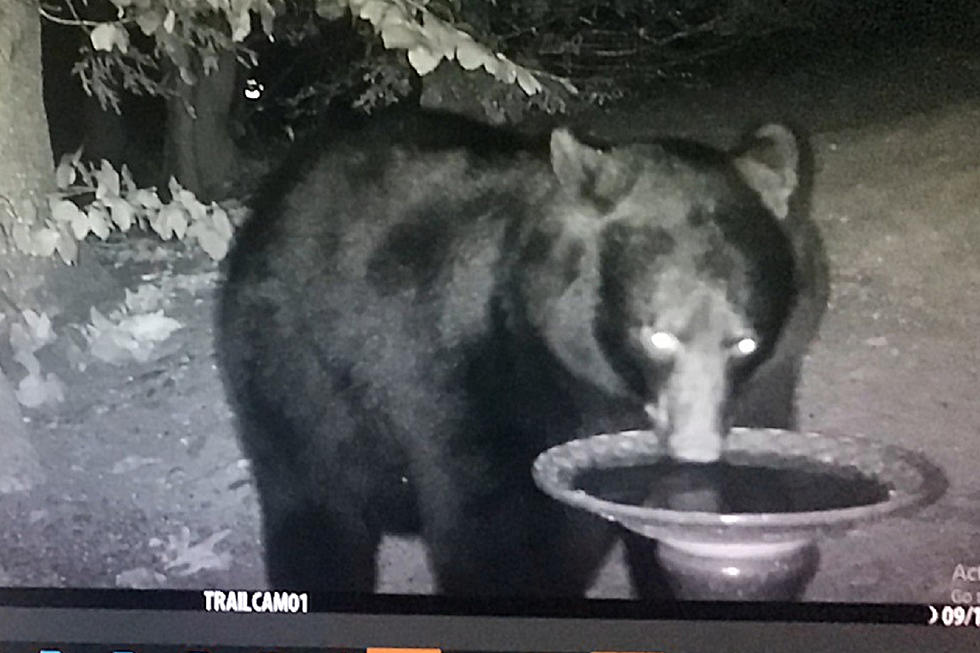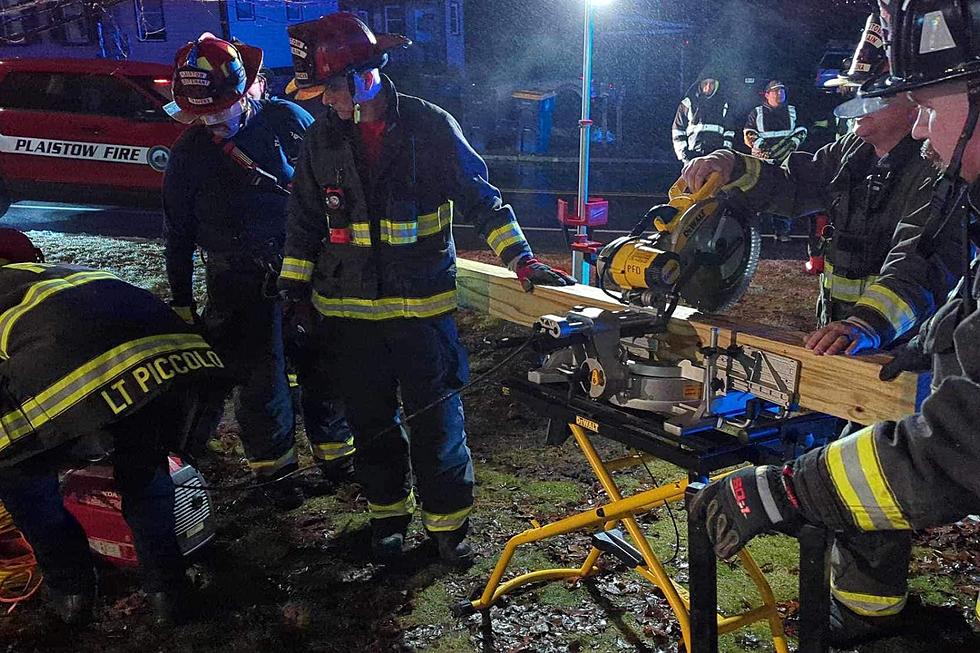
Take Down Feeders to Keep Bears Away, Fish & Game Warns
As mud season comes to an end and people begin getting out their lawn mowers and picnic tables there's one thing New Hampshire's Fish and Game Department recommends you put away: your bird feeder.
"Bears live everywhere sometimes even in your backyard. Be a responsible neighbor and keep wildlife wild by removing your birdfeeders by the first of April and securing your garbage," bear biologist Andy Timmons said in a video.
There are nearly 5,000 black bears in New Hampshire, the only bears species in the state, who have been "denning" in burrows, caves, hollow trees, wind-thrown trees, slash piles or leaf nests on the ground to get out of the direct winter weather.
During denning a bear's body temperature drops several degrees, their metabolism is reduced by half and their heartrate drops from 40-50 beats/minute to 8-19 beats/minute, and body weight decreases approximately 25%. Except for waking up for a winter thaw they've been in one spot since mid-October
With the weather getting warmer they're already up and about and looking for food.
A member of The (un)Official City of Dover, NH Facebook page on Facebook named Kaitlyn showed video of a black bear in her backyard of her Middle Road home in early March. A Plaistow resident shared video with WCVB TV of a bear in their backyard.
Providing a source of food for bears can result in them becoming accustomed to humans, Fish & Games says on their website, which can lead to conflicts between bears and humans that usually end with a bear having to be forcibly removed from an area.
"Be reminded that many people have an irrational fear of bears. A black bear's presence in a residential area may create fear among neighbors and lead to negative consequences for the bear," according to Fish & Game.
" align="center"]
Fish & Game say bears are not usually aggressive towards humans but will protect their cubs. A mother bear will make a huffing or popping noise as a warning that you are too close which is called a "bluff charge."
If this occurs, Fish & Game says you should:
- Keep your distance. Make it aware of your presence by clapping, talking, singing or making other sounds
- Maintain eye contact with the bear
- Speak in a soft, calm voice and slowly back away from the bear to show you are not weak but also not a threat.
- Do not run, avert your eyes or turn your back to the bear. The bear may perceive weakness and enforce dominance.
- The bear's "bluff charge" and chomping of teeth are a defense mechanism to establish the bear's dominance in an encounter with humans or a more dominant animal in the wild. Bears can outrun, out-swim and out-climb you.
- If you are attacked by a black bear, you should fight back rather than "play dead."
Bird feeders can safely be put back up after December 1. However, bears that have access to winter feeders will sometimes remain active and visit feeder late into December and sometimes beyond, according to Fish & Game.
Fish & Game on their website says birds will okay without your feeder.
Contact reporter Dan Alexander at Dan.Alexander@townsquaremedia.com or via Twitter @DanAlexanderNH
KEEP READING: See how animals around the world are responding to COVID-19
More From Seacoast Current








